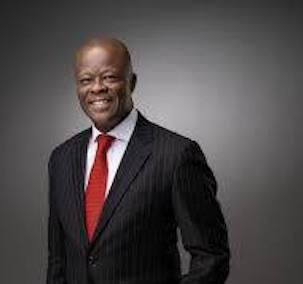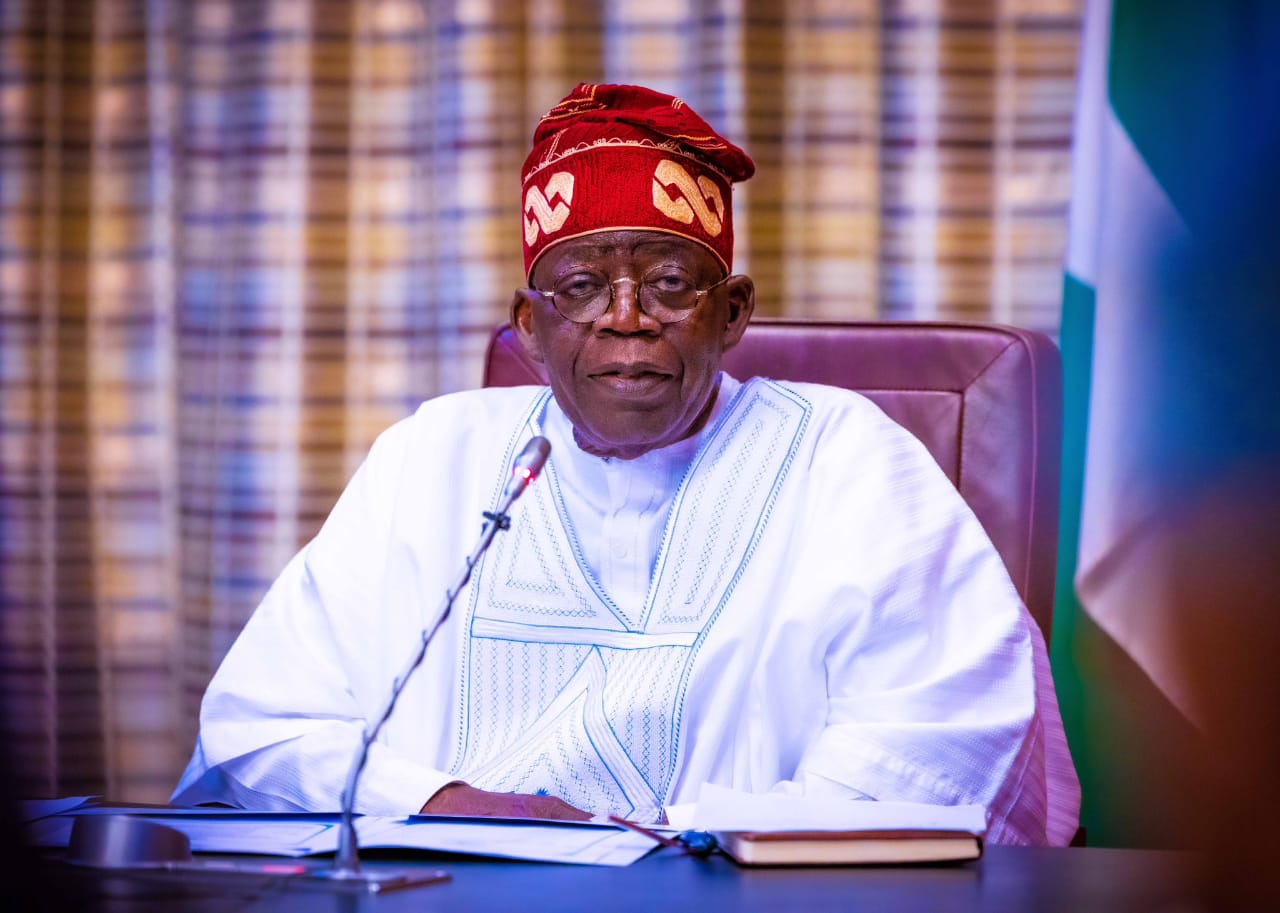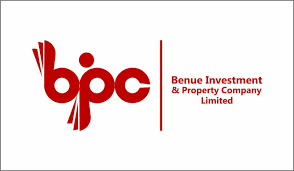COVER
‘Dangote Sugar $700m BIP Investments to Promote Infrastructure Dev’t’

From Joseph Amedu, Lokoja
With an annual import of over $337million, the management of Dangote Sugar Refinery Plc has declared its irrevocable commitment to the Backward Integration Policy (BIP) of the Federal Government to reverse the trend and make Nigeria self-sufficient in sugar production.
The company, which is committing over $700million to its sugar projects told visiting members of the Nasarawa House of Assembly at the weekend that the company’s investments in sugar will revolutionalise the economy of the state and lift its people as other people-oriented infrastructures would come with the sugar projects.
The state lawmakers who were obviously excited at the sugar projects commended the Dangote Group for choice of the state for the project and the accelerated pace with which the project was being executed despite occasional delays arising from communal disagreements.
Nigeria is one of the sub-Saharan Africa’s largest importers of sugar second only to South Africa, but the Dangote Sugar management assured the lawmakers that by the time the company fully completes its sugar projects in Nasarawa and Adamawa under the BIP, the nation would be saved of more than half of the forex expended on sugar imports annually.
General Manager for the Backward Integration Project, Dangote Sugar, Mr. John Beverley said when the factory is fully operational, it would have the capacity to crush 12,000 tons cane per day (tcd), while 90MW power will be generated for both the company’s use and host communities.
He disclosed also that some 500km roads in all will be constructed to ease transportation within te vicinity, even as he solicited the support of the lawmakers in controlling the menace of land enchroachment by settlers and itinerant farmers.
Mr. Beverley said the company has been carrying out Corporate Social Responsibility (CSR) projects in the communities pointing out that so far the company has constructed boreholes, schools, Clinic and awarded scholarship among other CSR services.
In his response, Speaker of the Nasarawa State House of Assembly Hon. Ibrahim Balarabe Abdullah, who led the team said that the $500 million so far expended on the investments by Dangote Sugar Refinery Plc in Nasarawa State is not only a blessing to Nigeria but the pride of Africa.
The Speaker and his team members, who were conducted round the company’s 78,000 hectares Backward Integration Project in Tunga Awe Local Government Area of the stated commended the Chairman of the Company. Ahaji Aliko Dangote for the gigantic project saying “seeing is believing”.
The Speaker said he was taken aback by the huge nature of the investment, noting that it would not only open up opportunities in the state but in Africa as a whole.
Aside the Speaker, other Principal Officers in his entourage are: House Majority Leader Hon Umar Tanko Tunga(Awe North), Deputy Majority Leader Daniel Ogah Ogazi, the Chief Whip Hon Muhammad Muluku(Nasarawa Eggon East), Hon. Suleiman Yakubu Azara(Awe South) and Hon Muhammad Alkali(Lafiya North).
The Speaker said the lawmakers were ready to partner and support the company towards the realization of the sugar project through relevant legislations.
According to him, the news that the project would create about 150,000 jobs is a welcome one, more so when it is no secret that the project site was once a forest harbouring criminals before its acquisition by the Dangote Sugar Refinery.
Also shedding light on the project, the General Manager, Government and Stakeholders Relations, Mr. Bello Dan Musa said the President of Dangote Group is passionate about lifting Nigeria’s economy through strategic investment and job creation.
He added that the huge project does not only fit into the Backward Integration Policy and National Sugar Master Plan(NSMP), but the diversification agenda of the government.
The Dangote Group is the biggest private sector investor in the Backward Integration Policy of the Federal Government. The policy seeks to gradually halt the importation of sugar into the country.
It would be recalled that in 2017 the Dangote Industries Limited signed a landmark $700million Memorandum of Understanding with the Nasarawa State Government.
The integrated sugar complex to be located in Tunga, Awe Local Government Area of Nasarawa state, comprises of an initial 60,000ha sugar plantation and two sugar factories with capacity to produce 430,000tpa of refined white sugar representing about 30% of the country’s consumption and would be the largest plant in Nigeria.
When the phase II of the project is completed, according to the company, it would make it the largest sugar refining plant in Africa.
COVER
Nigeria’s Capital Market Key to Achieving $1trn Economy – FG

By Tony Obiechina, Abuja
Minister of Finance and Coordinating Minister of the Economy Wale Edun has emphasized the crucial role of the capital market in achieving the nation’s ambitious goal of becoming a $1 trillion economy.Edun, who spoke at the Capital Market Committee (CMC) meeting, was represented by Minister of State for Finance; Dr.
Doris Uzoka-Anite highlighted the market’s transformation since 2015, with improvements in governance structures, new products and platforms, stronger regulatory environment, and growing investor participation. According to the Minister, the Implementation of the Capital Market Master Plan (2015-2025), has been instrumental in increasing the market’s contribution to the national economy, developing a sophisticated market structure, and improving competitiveness.Edun said the revised plan prioritizes digitalization, innovation, sustainability, inclusion, and capital formation, aligning with the broader economic reform agenda.He said the passage of the new act modernizes the legal and regulatory framework, streamlines enforcement mechanisms, and provides clarity on emerging areas such as digital assets and crowdfunding.On the challenges and opportunities inherent in the Act, the Minister said, it will help deepen market participation, as well as ensure regulatory coordination remains tight.On the government’s private sector innovation in creating the needed environment for businesses to thrive, the Minister noted that the government is committed to creating an enabling environment for private sector innovation to flourish within a fair and transparent environment.The Minister added that the market is expected to contribute to the economy, serving not only for capital raising but also as a vehicle for wealth creation, economic inclusion, and long-term national resilience.He explained that, with the Securities and Exchange Commission undertaking regulatory reforms, including joining the GBMC Network of IOSCO in promoting and implementing ISSB Standards amongst others, the domestic economy has recorded the fastest GDP growth in about a decade in 2024, driven by a strong fourth quarter and improved fiscal position.Earlier in his speech, the DG SEC, Dr. Emomotimi Agama, emphasized the Commission’s commitment to regulatory reforms and capital market growth.According to him the enactment of the Investment and Securities Act (ISA) 2025 marks the beginning of a transformative new era for the capital market.Agama highlighted the Commission’s efforts to deepen engagement with stakeholders, ensure widespread dissemination and understanding of the new law, and drive innovation and compliance.He also emphasized the importance of restoring investor confidence, bringing timely relief to aggrieved investors, and creating a platform for broad-based participation of Nigerians in wealth creation.The SEC boss noted that the Commission has constituted an implementation team to thoroughly engage with every provision of the ISA 2025 and set up a dedicated sensitization team to deepen public understanding of the new law. A podcast series has also been launched to simplify the ISA 2025 and make it accessible to all Nigerians.Agama highlighted the Nigerian capital market’s impressive performance in 2024, with the NGX All-Share Index increasing by 37.65% and market capitalization growing by 53.39%. He also noted the Commission’s efforts to enhance regulatory efficiency, promote market integrity, and protect investors.The SEC boss emphasized the importance of financial inclusion and investor education, citing the Commission’s initiatives to empower women, youth, and grassroots communities. He also highlighted the Commission’s commitment to technology-driven solutions, including the launch of an e-survey to assess emerging technology adoption in the Nigerian capital market.Agama concluded by emphasizing the Commission’s commitment to fostering growth, transparency, and sustainability in the capital market, and looking forward to fruitful deliberations at the meeting.The highlight of the CMC meeting was the unveiling of the ISA Act 2025 by the minister.COVER
FG Boosts Internet Access, Rolls out $2bn Fibre Network

By David Torough, Abuja
The Presidency on Monday said Nigeria’s Communications and Digital Economy sector attracted $191m in foreign direct investment in Q1 2024, a nine fold increase from $22m in Q1 2023.The Minister of Communications, Innovation and Digital Economy, Bosun Tijani disclosed this during an interview for an upcoming State House documentary marking President Tinubu’s second anniversary.
Special Adviser on Information and Strategy to the President, Bayo Onanuga, revealed in a statement yesterday titled; “Investment in Digital Economy Grows Ninefold, Rollout Of $2 Bn Fibre Optic Infrastructure Begins Q4: Bosun Tijani. ”Tijani highlighted the sector’s robust workforce development, driven by the three Million Technical Talent programme and revealed plans for a $2bn initiative to deploy 90,000 kilometres of fibre optic infrastructure nationwide, starting in Q4 2025.“These foundational reforms, coupled with advancements in artificial intelligence and the startup ecosystem, have positioned Nigeria as a global leader in the digital economy,” Tijani stated.Comparing FDI inflows, he said, “In Q1 2023, the sector had about $22m; by Q1 2024, with this administration well underway, we reached $191m. The trend continued in Q2, increasing from $25m in 2023 to $114 m in 2024.”According to the minister, the 3MTT programme, launched in October 2023 to create a tech-savvy workforce, has already trained over 117,000 Nigerians in digital skills, surpassing its initial target of 30,000.“By last year, we had already moved that to over 117,000. With an additional 35,000 in training, the programme is nearing 10% of its 3 m goal. And in the rest of the time in office, we hope to reach three million,” he said.Regarding connectivity, Tijani announced that Project Bridge, focused on deploying 90,000 kilometres of fibre optic cable, will commence in the fourth quarter.“We are preparing a $2bn investment to ensure every Nigerian can access affordable, high-quality connectivity regardless of location. Increasing connectivity hubs by just 10 per cent could yield a 2.5 per cent GDP growth,” he said.Tijani celebrated Nigeria’s ranking among the world’s top 60 countries for AI readiness and developing a homegrown large language model.He also highlighted the launch of the AI Collective platform, supported by leading partners including Pierre Omidyar, Google, and Microsoft, to foster collaboration and innovation in artificial intelligence.For the first time in the country, the ministry has funded 55 academic researchers to explore technology applications in agriculture, healthcare, and education. In addition, N300m was invested in 10 startups using AI and blockchain to enhance agricultural productivity.On the Nigeria Startup House in San Francisco, an initiative targeting $5 billion in startup funding, Tijani said, “Our goal is to attract $5 billion in investments for Nigerian startups, supported by the Startup Pact and Trade Desk initiatives, which will connect local tech firms to global opportunities and government procurement.”Tijani revealed that over 500 government technologists have been trained in AI and Digital Public Infrastructure, and the groundbreaking Digital Economy Bill has passed its first reading in the National Assembly.To bridge rural connectivity gaps, the Minister projected that 7,000 telecom towers would be deployed, targeting 98 per cent nationwide coverage, adding that the Federal Executive Council had already approved the project.He described the progress on Right-of-Way issues as a game-changer for the country, revealing that 12 states in the federation have adopted zero-rated Right-of-Way policies.According to him, these efforts will support the National Broadband Plan’s goal of achieving 90% penetration by 2025, up from 48% in 2024.He projected the sector’s GDP contribution to rise from 16 per cent to 22 per cent, stating, “If a sector can increase its contribution by three to four per cent to the GDP, we’re about to see the economic growth we’ve not seen before. Technology allows us to bridge the gap between governments and the people.”Tijani said the government is not chasing quick wins. “The results we want to provide for Nigeria are long-lasting reforms that will transform our economy for generations to come”.COVER
Abbas Recommends Israel, Brazil, Vietnam Revenue Diversification Models

By David Torough, Abuja
Speaker of the House of Representatives, Hon. Abass Tajudeen, has declared that Nigeria’s heavy dependence on oil revenue would continue to leave its economy vulnerable, noting that agriculture remained the most viable alternative to achieving resilience.
Abass made the declaration in Abuja on Monday at a one day public hearing on some Bills seeking the establishment of agricultural colleges and institutions. Represented by Chief Whip of the House, Hon. Ibrahim Isiaka, the Speaker said it was within this context that the establishment and expansion of Agricultural Research Institutions across the country are not only necessary but strategically urgent.He said Nigeria should “Emulate countries like Israel, Brazil, and Vietnam that have attained a significant leap in agro development by investing substantially in research and development.”According to him, Brazil’s Embrapa, for instance, reengineered an infertile savannah into a global food hub, just as Vietnam’s targeted agricultural reforms pulled vast populations out of poverty, while Israel continues to innovate in arid-zone agriculture through technology-driven methods.Chairman of the House Committee on Agricultural and Institutions, Hon. Isiaq Abiodun Akinlade, recalled how in the 60s and 70s, the country was among the major exporters of agricultural produce such as cocoa, cotton, palm oil, and groundnuts.The lawmaker noted that Nigeria, with a population size of over 220 million and still growing, is desirous of more agricultural colleges and research institutions to help proffer solutions to issues, “namely climate change, insecurity, pest outbreaks, soil degradation, unskilled labourers, and livestock management.”























